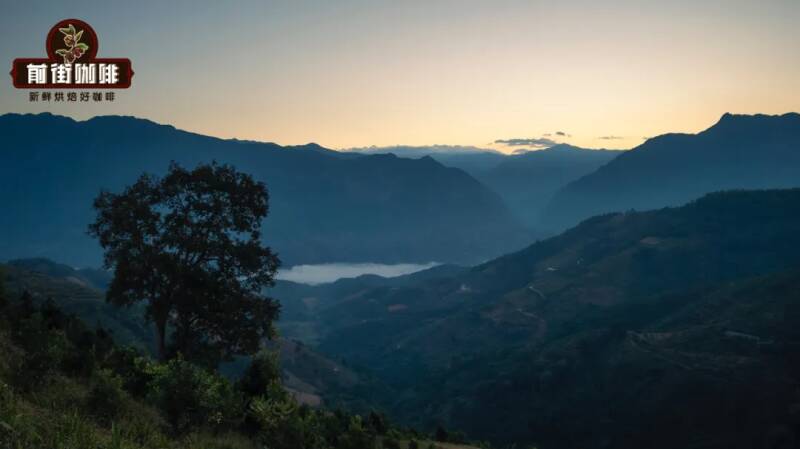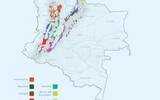What is the definition of boutique coffee? What does coffee flavor mean? How does the flavor of coffee come from?
"this bean is from Ethiopia in Africa, that bean is from Panama in Central America, and this one is from Sumatra."
I do not know if you have found a phenomenon, in addition to a few beans as well-known as Rosa, compared with other information, most baristas will give priority to the information of the producing area when introducing a bean. It's like tea or wine. Many friends feel puzzled, isn't it just a cup of coffee? why should we always emphasize the producing area?

It's simple! Because the coffee produced in different producing areas will have different "local flavor"! Then what is the taste of local soil? Don't worry, just listen to the front street slowly!
What is the taste of local soil? Terroir is the general name of the natural environment, customs and habits of a place. For coffee, vernacular mainly refers to the whole environment in which coffee is grown. Such as soil, temperature, Rain Water, climate and so on. And the flavor of the local style, naturally refers to the taste of coffee bred in this local environment.

Qianjie likes to quote an old saying: "tangerine is tangerine in Huainan and trifoliate orange in Huaibei." In the case of the same kind of beans and the same treatment, soil is the key factor to influence the taste of coffee. Because different producing areas will have very different customs, so the coffee taste they give birth to has different characteristics. The flavor of most of the producing areas is very distinct, so when we first mention the producing areas, the knowledgeable players can immediately associate a general tonality of the beans. Just like talking about Kenya, people will immediately think of the sweet and sour smell of small tomatoes and black plums.
The difference of local flavor is not only limited to the difference between countries, but also different in the same piece of land in the same country. For example, Sidamo and Yejasuefei in Ethiopia, the coffee flavor of Sidamo is mainly sweet and sour such as citrus and pineapple, while the coffee produced in Yejasuefei is mainly lemon, white flower and other relatively fresh flavor.
Then, in the local culture, there are three main factors that can influence the taste of coffee. These three factors are listed as the three elements of soil. So the surprise question on Qianjie came: excuse me, which three elements will affect the taste of coffee?
Soil: the nutrients needed by plants during their growth mainly come from the supply of soil. Therefore, the type and nutrient content of soil will play a very important role in the quality of crops. Coffee is also a kind of crop, so soil is also very important for the formation of coffee flavor, which has the most influence on acidity and alcohol thickness.
Climate: because coffee is a tropical plant and does not like the cold, it is not suitable for growing coffee in all places. Generally speaking, coffee is grown near the "coffee belt". This is a tropical region centered around the equator and before latitude 25 degrees south and north. On the other hand, different producing areas in the coffee belt will have different climate types, which also influence the development of coffee flavor.
Altitude: there is a common saying in the industry that "the higher the altitude, the better the coffee", which is not without reason. Altitude has the greatest effect on temperature, and the higher the altitude of coffee is, the lower the temperature of the environment is. Low temperatures delay the ripening of the coffee fruit, although this will prolong the ripening time of the coffee and reduce the harvest, but the fruit can absorb more nutrients. If the same beans are planted at different elevations, coffee grown at low altitude will harvest earlier than coffee grown at high altitude, while coffee at high altitude will taste fuller than that at lower altitude.
Finally, we need to know that soil is important to the taste of coffee, but in the process of changing coffee from seed to cup, what it does is to give coffee such basic conditions (flavor). Rather than determine the final coffee performance. In addition to the local soil, the variety gene, treatment method, roasting degree and extraction mode of coffee beans will affect the formation of coffee taste, so it is best to avoid this misunderstanding.
-END-
Important Notice :
前街咖啡 FrontStreet Coffee has moved to new addredd:
FrontStreet Coffee Address: 315,Donghua East Road,GuangZhou
Tel:020 38364473
- Prev

In what producing areas are coffee mainly grown in Colombia? What are the characteristics of the coffee produced?
South America is the continent with the largest coffee production in the world, producing more than half of the world's coffee production every year. It also has Brazil, which has the world's largest coffee production, and Colombia, which has the world's third largest coffee production. Colombia is the world's leading Arabica producer, but unlike Brazil's large plantations, Colombia
- Next

What is the difference between hard beans and soft beans in coffee? What is the difference between the altitude of coffee growing? How to classify coffee levels?
We can often hear the words "hard beans and soft beans" in barista conversations, such as soft beans that are easier to grind, hard beans that are harder to extract, etc. But when we picked up the so-called soft beans and pinched them, we realized, yeah? This is not soft! Why would a barista call it a soft bean? What is a hard bean/
Related
- What grade does Jamaica Blue Mountain No. 1 coffee belong to and how to drink it better? What is the highest grade of Blue Mountain coffee for coffee aristocrats?
- What are the flavor characteristics of the world-famous coffee Blue Mountain No. 1 Golden Mantelin? What are the characteristics of deep-roasted bitter coffee?
- Can I make coffee a second time in an Italian hand-brewed mocha pot? Why can't coffee be brewed several times like tea leaves?
- Hand-brewed coffee flows with a knife and a tornado. How to brew it? What is the proportion of grinding water and water temperature divided into?
- What is the difference between Indonesian Sumatra Mantinin coffee and gold Mantinin? How to distinguish between real and fake golden Mantelin coffee?
- What does bypass mean in coffee? Why can hand-brewed coffee and water make it better?
- Unexpected! Ruixing Telunsu lattes use a smoothie machine to foam milk?!
- % Arabia's first store in Henan opens into the village?! Netizen: Thought it was P's
- Does an authentic standard mocha coffee recipe use chocolate sauce or powder? Mocha Latte/Dirty Coffee/Salty Mocha Coffee Recipe Share!
- What is the difference between Vietnam egg coffee and Norway egg coffee? Hand-brewed single product coffee filter paper filter cloth filter flat solution!

